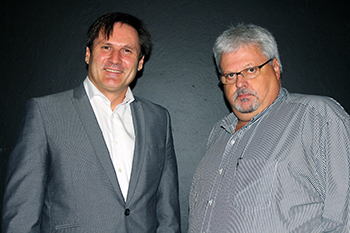Latest News Archive
Please select Category, Year, and then Month to display items
31 January 2018
Photo FNB Varsity Cup
 Lubabalo Dobela, Shimlas flyhalf (with the ball), played a key role in the Shimlas’ win over Tuks in the first round of the 2018 Varsity Cup.
Lubabalo Dobela, Shimlas flyhalf (with the ball), played a key role in the Shimlas’ win over Tuks in the first round of the 2018 Varsity Cup.
The Shimlas made a huge statement in their opening match of the 2018 Varsity Cup when they defeated last year’s champions at the Tuks Rugby Stadium in Pretoria.
The Free State students won the encounter against Tuks by 19-17 on Monday.
Tuks, who beat Shimlas twice last year, first in the group stage by 65-19, and then by 28-21 in the semifinals, were regarded as the hot favourites. The match was played in wet conditions which many thought would suit the home team better.
Determination carries team to win
But a young and inexperienced Shimlas team with 11 players making their debut in the competition proved that big hearts and guts count for just as much. It was only their third win in Pretoria in the 11th year of the competition and their second victory over Tuks since 2012.
As expected, both teams tightened up their approach. Shimlas struck back from a 0-5 deficit soon after the first strategy break as big and speedy wing Francois Agenbag stormed down the touchline to score a seven-point try. Flyhalf Lubabalo Dobela was on hand to convert and hand his team a 9-5 lead at the break.
Flyhalf stars in debut
The Shimlas extended their lead within five minutes of the restart as flank Benji Janse van Vuuren crashed over in the corner for a converted try. Dobela, one of the debutants who was named Player that Rocks (Player of the Match), controlled the match like a seasoned veteran. Apart from two difficult conversions from the touchline, he also slotted a penalty goal.
Internationally-renowned futurist proposes innovation in corporate management
2016-05-10

Pieter Geldenhuys, guest speaker at the seminar, who mapped the future of corporate management (left) with Dr Vic Coetzee, Senior Director: Information and Communication Technology Services at the UFS (right).
Photo: Hatsu Mphatsoe
|
Humans need to adapt their thinking to the world’s changes. This is Pieter Geldenhuys’s conviction.
The Information and Communication Technology Services (ICT) at the University of the Free State hosted a seminar on 22 April 2016 at the Bloemfontein Campus. Geldenhuys, the Director of the Institute for Technology Strategy and Innovation at North-West University and internationally-renowned futurist, presented his views on technology, innovation, and corporate management on this occasion.
Geldenhuys, a well- known speaker, academic, and futurist, is in the business of identifying opportunities in the changing technological and social landscape with the aim of assisting companies to prepare for the future, while being an active agent in defining it. Lately, he has been exploring the concept of a new kind of management science, which he believes is a prerequisite for institutions such as ours.
This management science incorporates physics in improving corporate management. “We have an unbelievable grasp of the world of physics,” he said, suggesting that we use our knowledge of nature to capitalise on individual and collective strengths within institutions.
He said that minor changes can change one’s future or that of an organisation completely. He even went as far as to state that the culture of an organisation is the one that determines how well you do. Relating to the adaption of organisations in a constantly changing and dynamic environment, Geldenhuys advised that, “when faced with disruption, don’t retaliate; accept.”
By making use of different tools, such as technology aw well as social and business trends, Geldenhuys is adamant that corporations and institutions will adapt easily to the world’s complex systems.